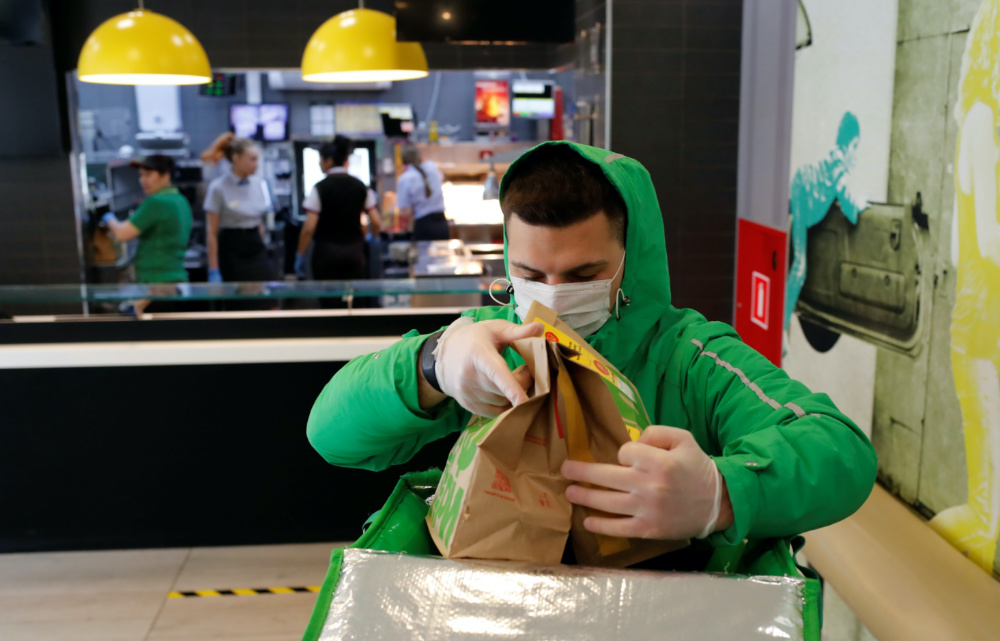London, UK
Thomson Reuters Foundation
Growing armies of gig workers have little to no say in how they are being monitored during the coronavirus pandemic, researchers and advocates told a conference last week, calling for better oversight in how tracking tools are deployed.
From Singapore to Estonia, business is turning to technology to help people resume work and travel, with apps, scanners, and so-called immunity passports, but digital rights experts warn against privacy and increased surveillance.

Ruslan, a 22-year-old courier of a food delivery service, puts an order into his bag at a restaurant, amid the coronavirus disease (COVID-19) outbreak in Moscow, Russia, on 7th April. PICTURE: Reuters/Maxim Shemetov
Gig workers – independent contractors such as drivers who perform on-demand services – are most vulnerable to surveillance as they have no safeguards like minimum wage or health cover, researchers told the Thomson Reuters Foundation’s annual Trust Conference that was held online.
“Tools to monitor gig workers were at play before the pandemic when it was a harder sell, but when introduced during COVID you have public health as a legitimate reason,” said Urvashi Aneja of policy and advocacy collective Tandem Research in India.
In India, contact-tracing mobile app Aarogya Setu is mandatory for food-delivery workers, government and some private sector employees.
Such tools can track gig workers’ location at all times, regardless of whether they are at work or not, said Aneja, whose organisation has been reviewing tech tools used during the pandemic.
“One of the things that gig work does it that it fragments the labour force, so the ability and the spaces to collectively bargain, for workers to come together, is also decreasing,” she added.
Workers’ increased engagement with tech platforms fuels a model where “we are turned into monetised bits that are bought, sold and traded”, said Safiya Noble, a leading technology scholar at the University of California, Los Angeles.
Monitoring technologies like facial recognition tends to single out minorities for unfair treatment, and provide little recourse for them to seek redress, said Noble.
Aneja agreed, saying “not only is tech created in the Global North, it’s critiqued in the Global North”.
“We need to build up civil society so that the critique doesn’t replicate the same power imbalances as the product.”
Alice Munyua, director of innovation and public policy for Africa at Firefox browser maker Mozilla, called for more tools to help create a “healthy internet”.
The company developed Facebook Container, a Firefox extension that allows users to isolate their web activity from Facebook sites like Instagram and Messenger.
“This prevents Facebook from following you around the web…the less data they have on you the less they can give away,” she said.






